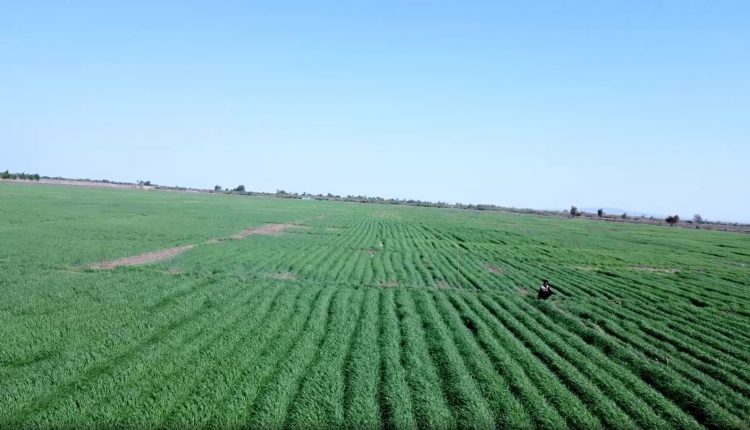Ethiopia’s triannual wheat production transforms work culture
Addis Ababa, December 28, 2024 (FMC) – Ethiopia’s shift towards producing wheat three times in a year, including during the summer season, has not only increased production and productivity but also changed the work culture, according to Agriculture State Minister, Melese Mekonnen.
Ethiopia has intensified wheat production by cultivating the crop during the Meher, Belg, and Kiremt seasons.
The state minister asserted that 2.4 million hectares of land has been covered with irrigated wheat this Ethiopian fiscal year.
Further disclosing that 4.2 million hectares of land has been cultivated for summer irrigated wheat this year with a target of producing 173 million quintals, Melese added that efforts are underway to achieve the goal.
According to him, Ethiopia has registered a historic milestone by becoming a net exporter of wheat thanks to the summer irrigated wheat development initiative implemented over the past five years.
Consequently, producing wheat three times a year, including during the summer season, has not only increased production and productivity but also changed the work culture in Ethiopia.
Alongside harvesting the Meher crops, preparation of farmland for summer irrigated wheat has intensified across the country the state minister said.
In areas where the Meher harvest was delayed or failed, timely summer irrigated wheat cultivation is being carried out.
In terms of inputs, improved wheat seeds have been distributed to farmers in advance this year, as called by ENA.
Additionally, fertilizers were distributed early to farmers, and measures have been taken to increase production and productivity.
Regarding water supply, water pumps were distributed to farmers.
The state minister finally noted that vegetable and fruit cultivation projects are being given special attention alongside summer irrigated wheat.



